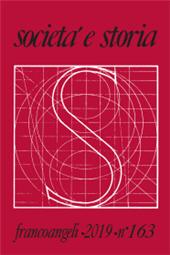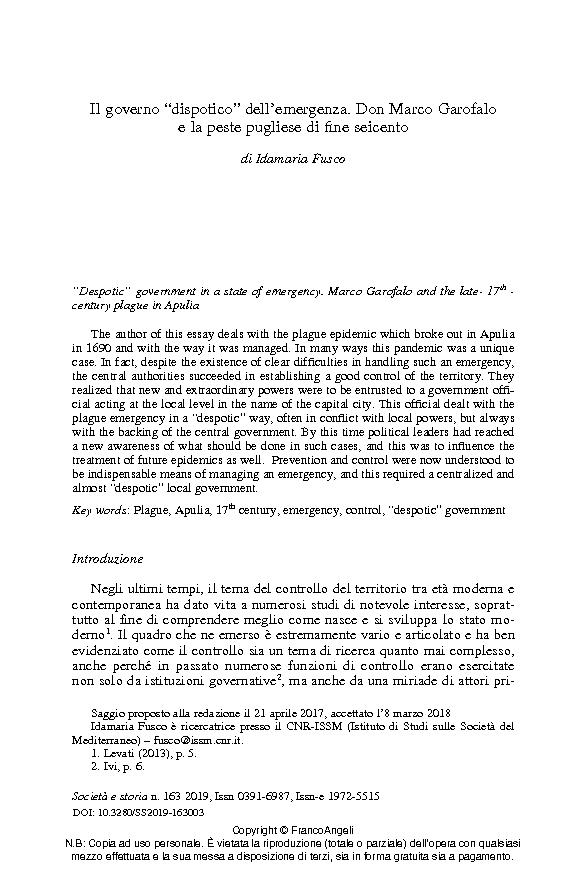Il governo dispotico dell'emergenza : don Marco Garofalo e la peste pugliese di fine seicento
23-56 p.
The author of this essay deals with the plague epidemic which broke out in Apulia in 1690 and with the way it was managed. In many ways this pandemic was a unique case. In fact, despite the existence of clear difficulties in handling such an emergency, the central authorities succeeded in establishing a good control of the territory. They realized that new and extraordinary powers were to be entrusted to a government official acting at the local level in the name of the capital city. This official dealt with the plague emergency in a "despotic" way, often in conflict with local powers, but always with the backing of the central government. By this time political leaders had reached a new awareness of what should be done in such cases, and this was to influence the treatment of future epidemics as well. Prevention and control were now understood to be indispensable means of managing an emergency, and this required a centralized and almost "despotic" local government. [Publisher's text].
Fa parte di
Società e storia : 163, 1, 2019-
Articoli dello stesso fascicolo (disponibili singolarmente)
-
Informazioni
Codice DOI: 10.3280/SS2019-163003
ISSN: 1972-5515
PAROLE CHIAVE
- Plague, Apulia, 17th century, emergency, control, "despotic" government



